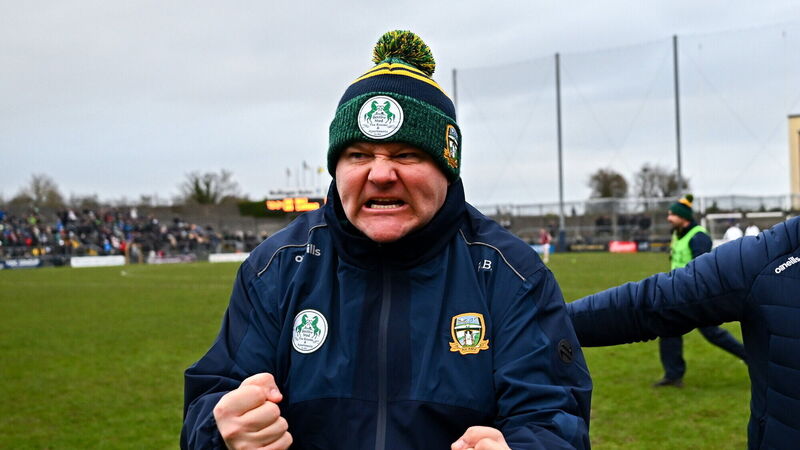Comeback kids: It's football, Jim, but not as we know it

NOTHING BUT NET: Meath manager Robbie Brennan. celebrating after his side's victory over Westmeath, described the new-look game as 'outdoor basketball'. Pic Tyler Miller/Sportsfile
Gaelic football is many great things but for comebacks hurling has the patent rights.
Cork transforming a seven-point deficit to beat Galway by three in the 1990 All-Ireland final. Tipperary pulling off an unimaginable 13-point turnaround against Cork in the Munster final the next year.











